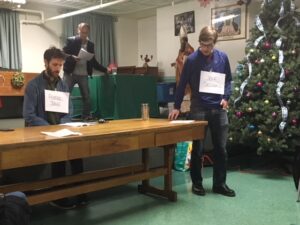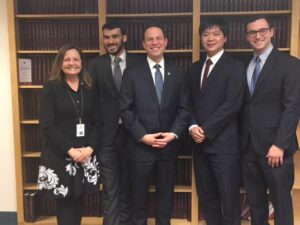Peter Hyndman (2L) and Rafaela Uribe (2L), students in the Social Justice Lawyering Clinic, worked with New Sanctuary Movement (NSM) to help support their advocacy work on Philadelphia’s “sanctuary” policies. NSM approached the Sheller Center for Social Justice seeking a partnership to address Philadelphia’s problematic and continued collaboration with Immigration & Customs Enforcement (ICE). Despite calling itself a “sanctuary city,” and even suing Attorney General Jeff Sessions over the Trump Administration’s attempts to defund “sanctuary cities,” Philadelphia’s policies have proven inadequate in protecting its immigrant residents from ICE. ICE has indiscriminately targeted Philadelphia residents––regardless of their time living in the U.S., employment status, or relationships to U.S. citizens––for removal from the U.S. A skit developed by the students helped NSM explain the lawsuit to its members.


